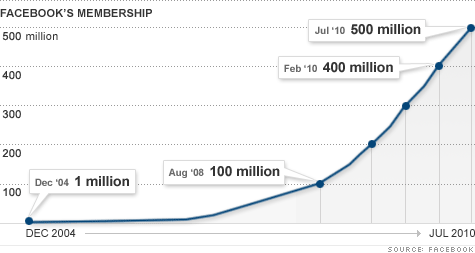I am sure most readers of this blog are on Twitter. For most of us, Social Network site like Twitter was introduced to us by friends who are already on, and we probably took Twitter as just another communication medium, just like IM, blogging or more aptly microblogging. But if you observe tweets and how users are tweeting, you will see subtle points that are not shared with earlier communication platforms.
One way to crystalize the essence is to explain what it is to grand mother, that is, capturing the core in plain simple English. Can you explain the essence of Twitter to your grandma?
One analogy that I liked was wall of Post-It notes. Search Engine Guide ran an article a couple of years back, and it's a good analogy.

Twitter is like whole bunch of Post-It notes on public bulletin board. Anyone can scribble on a Post-It note and stick it on to bulletin board; anyone walking by the bulletin board can skim through Post-It notes to glean information from them. It's a good analogy because it captures key ingredients of Twitter:
1. Post-Its on bulletin board are public
Just like Post-Its on bulletin board, tweets (name of Post-It notes on Twitter) are public by default. Anyone can post, and everyone can view everyone else's posts.
2. Post-It notes are short
Just as Post-It note is brief (to fit on Post-It), tweets have to be short (to fit on SMS). In fact tweets have hard limit of 140 characters originally introduced for interoperability with SMS.
3. Post-It notes are disjoint
Post-It notes are short messages on specific topic or task. Two Post-It notes placed different spots will likely talk about different things (context is derived from where Post-It note is found). Individual tweets are also disjoint from each other. But because it lacks physical context, Twitter makes up that gap by introducing special tags (address field or subject line)
This is great. But even though Post-It-on-bulletin-board analogy provides nice parallel, I think there are few important aspects of Twitter missing.
4. Tweets are made in timeline
All tweets are timestamped, and shown from most recent to oldest order. This means list of tweets looks like a scrolling news ticker where latest news appears on top. Showing timeline from latest to oldest (along with AJAX update) is important because this helps tweets become real-time medium and creates instant tweet feeds (continuously updating with real-time tweets).
5. Tweets can be filtered by keywords
Because there are thousands of tweets made per second, it's impossible to make sense of what each individual tweet is saying at all time. Twitter solves this problem by providing filtering capability (Twitter calls it search, but it's really filtering if you think about constant update of filtered tweets timeline). When tweets are filtered by keywords, by addressed to ('@' tag), or by topic ('#' tag), Twitter returns the timeline (list of tweets) that only contains the filtered keywords. Note that because timeline gets updated constantly, this creates illusion where virtual chatroom exists somewhere where all people are chatting, but it is not the case. It may be the case that people are not filtering by the same keywords, and no one else might be watching the timeline feed that you're seeing!
6. Tweets are real-time
This is arguably the most important point missing from Post-It analogy. This is partly because of 190 million users tweeting 65 million times a day, but also due to Twitter's design of real-time update via AJAX. The fact that most tweets are made from mobile device is also another key driver of tweets being real-time.
So what is Twitter? It's not IM, not email, and definitely not a group chat. It's real-time feed of public electronic notes. I guess we could call it as Post-Its in 21st century.



